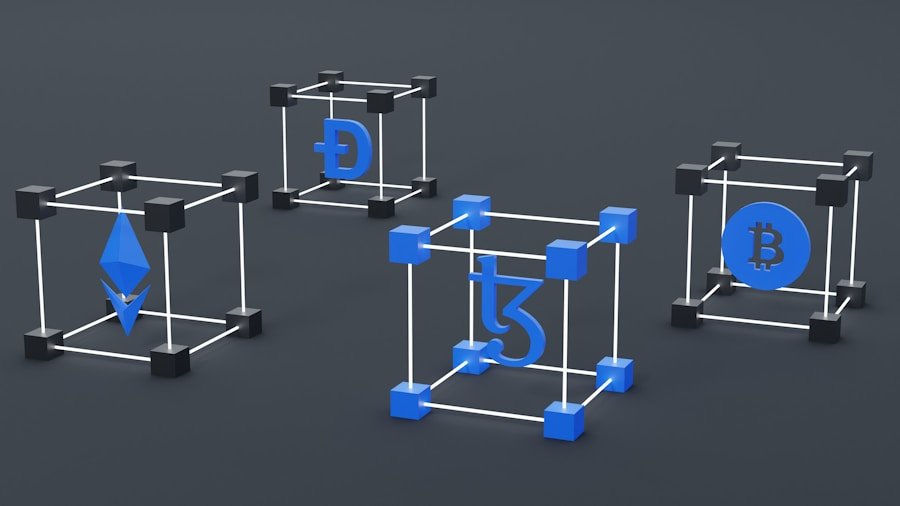Data sovereignty refers to the concept of ensuring that data is subject to the laws and regulations of the country in which it is located. This means that data is subject to the jurisdiction of the country in which it is stored, and that country’s laws and regulations apply to that data. Data sovereignty is an important concept in today’s digital world, as more and more data is being stored and processed across borders. This has raised concerns about the security and privacy of data, as well as the potential for data to be subject to different laws and regulations in different countries.
Data sovereignty is important for a number of reasons. First, it ensures that data is subject to the laws and regulations of the country in which it is located, which can help to protect the security and privacy of that data. Second, data sovereignty can help to ensure that data is not subject to conflicting laws and regulations in different countries, which can create legal and regulatory challenges for businesses and individuals. Finally, data sovereignty can help to ensure that data is subject to the same legal protections and rights as other forms of property, which can help to protect the rights of individuals and businesses.
The Role of Blockchain Technology in Data Sovereignty
Blockchain technology has the potential to play a significant role in ensuring data sovereignty. Blockchain is a distributed ledger technology that allows for the secure and transparent recording of transactions. This makes it an ideal technology for ensuring the security and privacy of data, as well as for ensuring that data is subject to the laws and regulations of the country in which it is located.
One way in which blockchain technology can help to ensure data sovereignty is by providing a secure and transparent way to record the location of data. By using blockchain technology, it is possible to create a secure and transparent record of where data is stored, as well as who has access to that data. This can help to ensure that data is subject to the laws and regulations of the country in which it is located, as well as to provide transparency and accountability for how that data is being used.
Another way in which blockchain technology can help to ensure data sovereignty is by providing a secure and transparent way to record the ownership and control of data. By using blockchain technology, it is possible to create a secure and transparent record of who owns and controls data, as well as how that data is being used. This can help to ensure that data is subject to the same legal protections and rights as other forms of property, as well as to provide transparency and accountability for how that data is being used.
Empowering Individuals through Blockchain Technology
Blockchain technology has the potential to empower individuals by giving them greater control over their own data. By using blockchain technology, it is possible for individuals to have greater visibility and control over where their data is stored, who has access to that data, and how that data is being used. This can help to ensure that individuals have greater control over their own personal information, as well as to provide greater transparency and accountability for how that information is being used.
One way in which blockchain technology can empower individuals is by giving them greater control over who has access to their personal information. By using blockchain technology, it is possible for individuals to have greater visibility and control over who has access to their personal information, as well as to have greater transparency and accountability for how that information is being used. This can help to ensure that individuals have greater control over their own personal information, as well as to provide greater transparency and accountability for how that information is being used.
Another way in which blockchain technology can empower individuals is by giving them greater control over how their personal information is being used. By using blockchain technology, it is possible for individuals to have greater visibility and control over how their personal information is being used, as well as to have greater transparency and accountability for how that information is being used. This can help to ensure that individuals have greater control over their own personal information, as well as to provide greater transparency and accountability for how that information is being used.
Ensuring Security and Privacy with Blockchain
Blockchain technology has the potential to ensure the security and privacy of data by providing a secure and transparent way to record transactions. By using blockchain technology, it is possible to create a secure and transparent record of where data is stored, who has access to that data, and how that data is being used. This can help to ensure that data is subject to the laws and regulations of the country in which it is located, as well as to provide transparency and accountability for how that data is being used.
One way in which blockchain technology can ensure the security and privacy of data is by providing a secure and transparent way to record the location of data. By using blockchain technology, it is possible to create a secure and transparent record of where data is stored, as well as who has access to that data. This can help to ensure that data is subject to the laws and regulations of the country in which it is located, as well as to provide transparency and accountability for how that data is being used.
Another way in which blockchain technology can ensure the security and privacy of data is by providing a secure and transparent way to record the ownership and control of data. By using blockchain technology, it is possible to create a secure and transparent record of who owns and controls data, as well as how that data is being used. This can help to ensure that data is subject to the same legal protections and rights as other forms of property, as well as to provide transparency and accountability for how that data is being used.
The Impact of Data Sovereignty on Individual Rights
Data sovereignty has a significant impact on individual rights by ensuring that data is subject to the laws and regulations of the country in which it is located. This helps to protect the security and privacy of data, as well as to ensure that data is subject to the same legal protections and rights as other forms of property. This can help to protect the rights of individuals by giving them greater control over their own personal information, as well as by providing greater transparency and accountability for how that information is being used.
One way in which data sovereignty impacts individual rights is by ensuring that individuals have greater control over who has access to their personal information. By ensuring that data is subject to the laws and regulations of the country in which it is located, it is possible for individuals to have greater visibility and control over who has access to their personal information. This can help to protect the rights of individuals by giving them greater control over their own personal information, as well as by providing greater transparency and accountability for how that information is being used.
Another way in which data sovereignty impacts individual rights is by ensuring that individuals have greater control over how their personal information is being used. By ensuring that data is subject to the laws and regulations of the country in which it is located, it is possible for individuals to have greater visibility and control over how their personal information is being used. This can help to protect the rights of individuals by giving them greater control over their own personal information, as well as by providing greater transparency and accountability for how that information is being used.
The Future of Data Sovereignty and Blockchain Technology
The future of data sovereignty and blockchain technology looks promising, with the potential for blockchain technology to play a significant role in ensuring the security and privacy of data. As more and more data is being stored and processed across borders, there will be an increasing need for technologies like blockchain to ensure that data sovereignty is maintained. This will require continued innovation in blockchain technology, as well as collaboration between governments, businesses, and individuals to ensure that data sovereignty is protected.
One potential future development in data sovereignty and blockchain technology is the use of smart contracts. Smart contracts are self-executing contracts with the terms of the agreement between buyer and seller being directly written into lines of code. These contracts could be used to automatically enforce data sovereignty requirements, ensuring that data is subject to the laws and regulations of the country in which it is located. This could help to provide greater transparency and accountability for how data sovereignty requirements are being enforced, as well as provide greater security and privacy for individuals’ personal information.
Another potential future development in data sovereignty and blockchain technology is the use of decentralized identity solutions. Decentralized identity solutions use blockchain technology to give individuals greater control over their own personal information, allowing them to manage their own digital identities without relying on a central authority. These solutions could help to ensure that individuals have greater control over who has access to their personal information, as well as how that information is being used. This could help to provide greater security and privacy for individuals’ personal information, as well as give them greater control over their own digital identities.
Practical Applications of Blockchain for Data Sovereignty
There are a number of practical applications of blockchain for data sovereignty that are already being explored. One potential application is in supply chain management, where blockchain technology could be used to ensure that products are produced in compliance with local laws and regulations. By using blockchain technology, it would be possible to create a secure and transparent record of where products are produced, as well as who has access to that information. This could help to ensure that products are produced in compliance with local laws and regulations, as well as provide transparency and accountability for how products are produced.
Another potential application of blockchain for data sovereignty is in healthcare, where blockchain technology could be used to ensure the security and privacy of patient records. By using blockchain technology, it would be possible to create a secure and transparent record of where patient records are stored, as well as who has access to those records. This could help to ensure that patient records are subject to the same legal protections and rights as other forms of property, as well as provide transparency and accountability for how patient records are being used.
In conclusion, data sovereignty is an important concept in today’s digital world, with significant implications for individual rights and privacy. Blockchain technology has the potential to play a significant role in ensuring data sovereignty by providing a secure and transparent way to record transactions. This can help to empower individuals by giving them greater control over their own personal information, as well as by providing greater security and privacy for that information. The future of data sovereignty and blockchain technology looks promising, with potential developments such as smart contracts and decentralized identity solutions offering new ways to ensure the security and privacy of data. There are also practical applications of blockchain for data sovereignty already being explored, such as in supply chain management and healthcare. Overall, blockchain technology has the potential to play a significant role in ensuring data sovereignty in today’s digital world.








